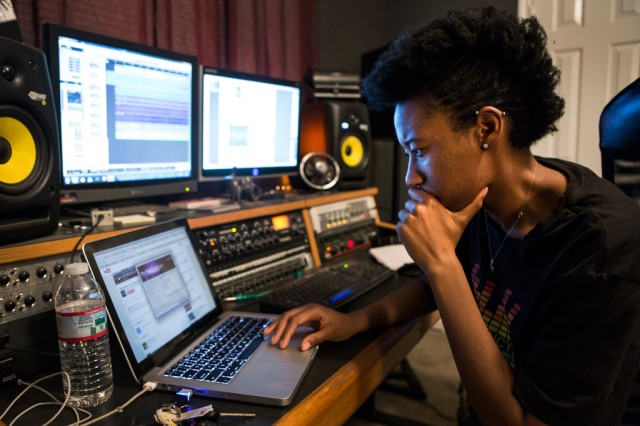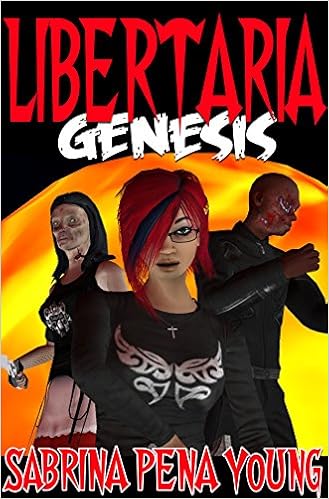 |
| PHOTO CREDIT: reportingtexas.com |
Low Down on 5 Music Mixing Mistakes Exposed: What You Need To Do
I've helped hundreds of musicians improve their musical style. Sometimes it's as simply as fixing a few instruments, sometimes it's a total overhaul. Avoid these on your next mix.
One of the composition projects I am working on right now deals with creating a few dozen short musical snippets. Nice little music ditties that fit snugly behind dialogue. As I am composing, I listen to the tracks for any sound that seems to stand out inordinately from the mix. I am not talking about solos, drum fills, or riffs. I am talking about a walking bass line that seems to plod, the string patch that sounds okay for two seconds, then gets blase', the drum beat that is nauseatingly redundant, or the synth pad that seems to swallow up the bottom end of the track.
Solution? After recording or MIDI inputting your instruments, go back and begin deleting some notes. Mess with the velocity, tempo, voice, and note duration. For kicks, sub in different instruments that you normally would not choose, then listen. Sometimes you will find a different instrument that sounds much better, and sometimes you will realize that your first instrument choice was the best music choice.
2. A sound that is not faithful to the style
If you are trying to maintain a certain authenticity when you are composing, it is important to not only be familiar with the music styles, chord progressions, etc., but to also be faithful to the instrumentation, orchestration, use of effects, etc. If you are writing a lazy sleazy bluesy lounge track, tossing in fast pasted xylophone licks topped with complex polyrhythms in the timbales and a full men's choir on "ooooooooooo" may make your music, at the least, sound schizophrenic. The mood is broken. Inundate yourself with recordings of the greats (and some not-so-greats), and listen for what makes that sound successful, whether your music is grunge, pop, hip hop, gospel, dance, or classical.
3. Outright music plagiarism
Yeah, I know..."Good artists borrow, great artists steal." Well, just be careful. There are so many melodic combinations out there, that it is easy to start writing, not realizing that you inadvertently tossed in the latest toothpaste commercial jingle. If it sounds familiar, let someone else listen to it and make sure that you did not subconsciously rip off of someone else. I know, for myself, being a sci-fi junkie, I have to be careful not to compose works that sound like something that came from the Cantina.
4. Noise, hisses, clipping, etc.
If you do not know how to work the equipment, you need to take a class or do an internship with a recording engineer. Unnecessary noise (from air conditioners, to "pops", to computer hum) are unacceptable in professional music recordings. Hisses sound like the "sss" of cassette tapes. Listen for clipping and distortion (when the sound goes into the red). In digital recordings it can sound like a slight "tap" or be very obvious. Take your recording to a pro and have them dissect it, then go back and fix it.
5. A small frequency range
I always advocate using a broad range of pitches. In other words, have lows, low mids, mids, highs, and super high frequencies represented in your instrument choice. If everything in your mix is low-pitched, it will sound muddy. If it is way too treble-heavy, it can sound thin or harsh to the ears. Mix it up. And don't just assign the melody to the typical vocals, guitars, etc. Drop it down to the acoustic bass or even try to imitate the pitches in the percussion. Expand your sound. Add some sub audio or a sprinkle of metallic synth flourishes. Take what you have and experiment.
Anyway, I have to head back to composing, but I hope these tips help you out in your next music mix. Peace.
"Libertaria: Genesis is dystopian, and good at it, and that needs further examination."
- J. Roseman, escapepod.org
A GREAT DYSTOPIAN THRILLER
TWO CINEMATIC ELECTRONICA ALBUMS
BEHIND THE SCENES LOOK
TWO CINEMATIC ELECTRONICA ALBUMS
FREE MOVIE POSTER
SCREENPLAY
BEHIND THE SCENES LOOK
A $40 Value for only $3.99
OVER 75 PAGES OF BONUS CONTENT!
In the abandoned ruins of a Nueva York dystopia, teen Libertaria escapes a horrific world of DNA testing and loneliness, only to team up with her megalomaniac father in a quest to destroy the Factory that made her. Armed with a ragtag army of cyborg misfits, Libertaria joins forces with her drug addict dad Simeon Aguila, leader of the Underground metropolis, to destroy GenTech's immortal Collective. But who is the deformed soldier invading her thoughts? And can she destroy the Factory before her traitorous deformed nemesis Lucinde betrays them all?
Unearthing dangerous family secrets that explain her mysterious past, Libertaria learns that sometimes to save the world
you must first lose your soul!
“One of my favorite things about this story is its odd apocalyptic tone and strong sci-fi/fantasy foundation. The dark quality that comes with it is the cherry on top.” –FanboysAnonymous.com on Libertaria: The Virtual Opera
Based on the "groundbreaking" and "epic" animation sci-fi film Libertaria: The Virtual Opera by award-winning composer and artist Sabrina Pena Young. In the spirit of Hunger Games and Divergent.
With a score composed by award-winning composer Sabrina Pena Young, the Libertaria Instrumental Soundtrack combines electronica and film music in an exciting and riveting way that jars the imagination and explodes the soul.
With over fifteen years experience in music, film, and the arts, Sabrina Pena Young can provide you with the insight you need to develop your creative dreams into a reality.
Contact Sabrina Pena Young Today:
Spenayoung@Gmail.com
@dalatindiva














Comments